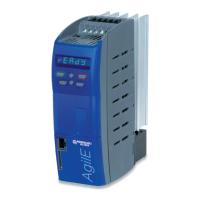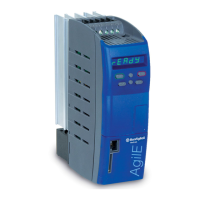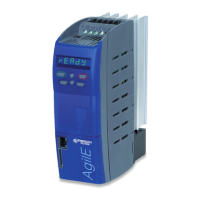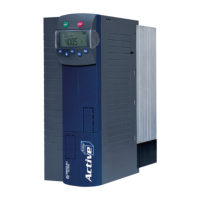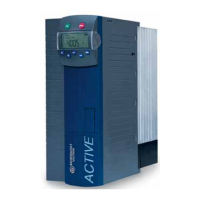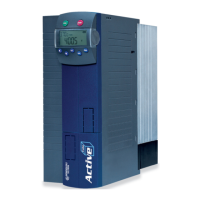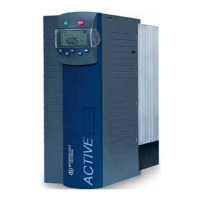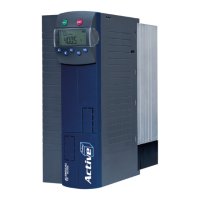5.4.4 [373] PD(T1) controller
Type Function
Type Function
I1 %
Input (reference
value)
O1 %
()
)
dt
2 I1 I d
2P1P2 I1 I1PO 1
−
× × +− × =
I2 %
Input (actual
value)
O2 % inverted output = -1
I3 %
Limitation of
output values
P1 i P amplification
I4 b Master Reset
P2 i Derivative action time in ms
Description:
The control deviation (I1- I2) is multiplied by the amplification P1. The D component is
added.
()
()
dt
2 I1 I d
2 P 1 P 2 I 1 I 1 P 2 OO 1
−
× × +− × =− =
The output value is limited to the value at input I3.
The input can be combined with a fixed value, for example.
As long as status TRUE is present at I4 (Master Reset), the output value O1 is 0.
The time constant T1 of the PD(T1) controller corresponds to the sampling time.
Note:
Percentages [%] have two decimals.
For example: Value 12345
IN
= 123.45% = 1.2345
5.4.5 [374] PID(T1) controller (Tn in milliseconds)
Type Function
Type Function
I1 %
Input (reference
value)
O1 %
()()
)
dt
I2I1d
P2dtI2I1
P1
1
I2I1O1
−
×+
∫
−+ − =
I2 %
Input (actual
value)
O2 % inverted output = -1
I3 %
Limitation of
output values
P1 i Integral time in ms
I4 b Master Reset
P2 i Derivative action time in ms
Description:
The control deviation (I1 – I2) is multiplied by the amplification (=1). The I component and the
D component are added.
()
()
)
dt
I2I1d
P2dtI2I1
P1
1
I2I1O2O1
−
×+
∫
In instruction "374 PID(T1) controller", the integral time P1 (I component) and the derivative
action time P2 (D component) can be adjusted. The amplification P1 is set to the fixed value 1.
In order to set up another amplification, a P controller (instruction "370 - P controller) must be
connected to the input of the PID(T1) controller.
Note:
In the P controller (instruction 370), P1 is the amplification. In the PID(T1) controller, P1 is the
integral time.
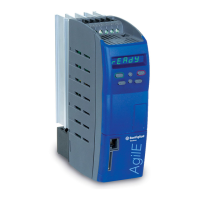
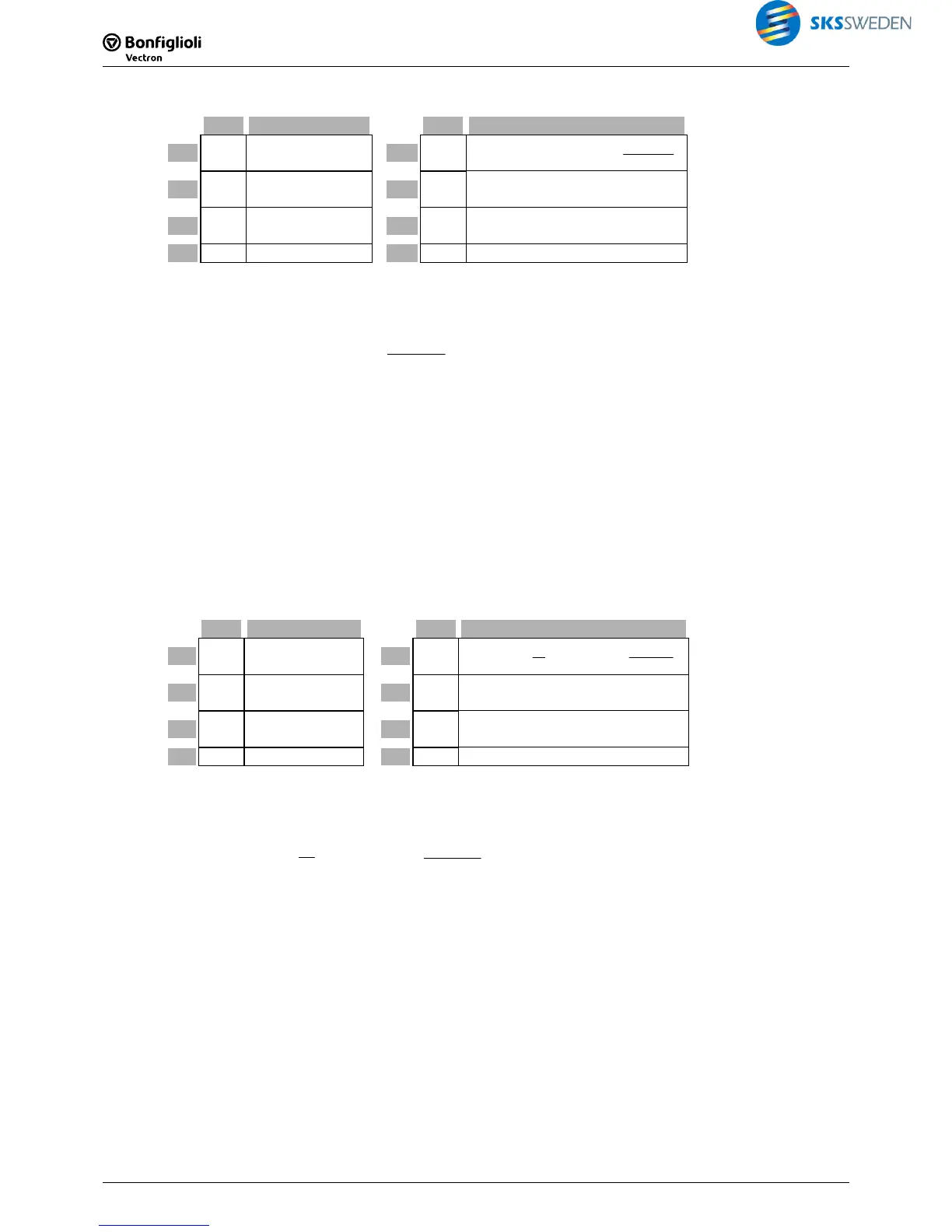